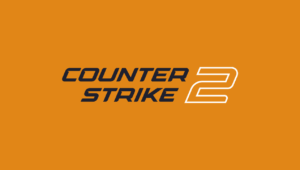PTC Therapeutics’ institutional ownership landscape shifted during fourth-quarter 2024 as major investors adjusted positions around the company’s $2.9 billion Novartis collaboration and advancing rare disease pipeline. Fund managers demonstrated varied approaches to the Warren, New Jersey-based biopharmaceutical company, with some reducing exposure while others maintained conviction amid regulatory catalysts and commercial developments. In this institutional realignment article, you’ll learn how Armistice, Vanguard, and Wellington navigate PTC’s $2.9B Novartis deal.
Position Adjustments Reflect Portfolio Rebalancing
Armistice Capital reduced its PTC Therapeutics holdings by 856,898 shares during fourth-quarter 2024, marking an 11.84% decrease to 6,378,000 shares. The transaction lowered PTC’s weight within Armistice’s portfolio to 4.63%, representing a strategic adjustment rather than fundamental skepticism about the rare disease specialist.
The fund’s reduction followed earlier accumulation during third-quarter 2024, when Armistice added 272,671 shares to reach 7,234,898 total shares. The subsequent trimming suggests tactical position management around PTC’s regulatory milestones and partnership developments rather than wholesale portfolio exit.
Vanguard Group maintains the largest institutional position with 10.9% ownership representing approximately 8.6 million shares, while BlackRock holds 9.8% with roughly 7.8 million shares. RTW Investments, a specialized healthcare fund, owns 9.4% with approximately 7.48 million shares, demonstrating continued institutional confidence in PTC’s rare disease focus.
Wellington Management holds 6.8% ownership with roughly 5.42 million shares, having increased its position by 13% during the reporting period. The expansion contrasts with Armistice’s reduction, illustrating divergent institutional approaches to PTC’s risk-reward profile amid pipeline advancement.
Novartis Partnership Transforms Financial Position: Institutional Realignment: How Armistice, Vanguard, and Wellington Navigate PTC’s $2.9B Novartis Deal
PTC’s collaboration with Novartis for the PTC518 Huntington’s disease program delivered $1 billion upfront with potential milestone payments reaching $1.9 billion, plus 40% profit sharing on U.S. sales and tiered international royalties. The partnership strengthened PTC’s balance sheet to over $2 billion in cash as of March 2025, providing substantial development runway.
The PIVOT-HD Phase 2 study of PTC518 expects results during second-quarter 2025, determining accelerated approval pathways following FDA alignment on HTT lowering as a potential surrogate endpoint. Novartis plans assuming global development, manufacturing, and commercial responsibilities for PTC518 upon completion of the placebo-controlled study portion.
PTC reported $807 million in full-year 2024 revenue, exceeding guidance, with fourth-quarter revenue of $213.2 million compared to $307.1 million in the prior year period. The company’s Duchenne muscular dystrophy franchise generated $547 million in revenue during 2024, while Evrysdi royalty revenue contributed $204 million.
Management projects 2025 revenues between $650-800 million, including contributions from established products, potential new product launches, and royalty streams from partner programs including Roche’s Evrysdi for spinal muscular atrophy.
Institutional Realignment: How Armistice, Vanguard, and Wellington Navigate PTC’s $2.9B Novartis Deal: Regulatory Catalysts Drive Institutional Interest
PTC achieved several regulatory milestones throughout 2024, submitting four FDA approval applications with all submissions accepted for review. The company received approval for Kebilidi (eladocagene exuparvovec-tneq) gene therapy treating AADC deficiency in November 2024, marking successful execution on rare genetic disorder treatments.
Sepiapterin, targeting phenylketonuria patients, awaits FDA decision by July 29, 2025, while vatiquinone for Friedreich’s ataxia received FDA priority review with an August 19, 2025 target action date. These regulatory catalysts provide near-term value inflection points institutional investors monitor closely.
The company’s established commercial products offer revenue stability while investigational therapies advance through regulatory processes. PTC’s focus on rare genetic disorders attracts institutional capital seeking exposure to specialized pharmaceutical markets with limited competition and expedited regulatory pathways.
Analyst Coverage Supports Investment Thesis
Research analysts maintain generally positive outlooks on PTC Therapeutics, reflecting institutional confidence evident in ownership patterns. Truist Financial initiated coverage with a “buy” rating and $80 price target, citing potential launches of sepiapterin and vatiquinone as key catalysts.
JPMorgan Chase maintains an “overweight” rating despite reducing its price target to $67 from $75 following first-quarter 2025 earnings. Bank of America upgraded PTC from “neutral” to “buy” with a $68 price target, up from $55, after revising projections for the phenylketonuria program to forecast $788 million in peak risk-adjusted sales.
Wells Fargo raised its price target to $74 from $68 while maintaining an “overweight” rating, demonstrating sustained analyst confidence in PTC’s commercial and development prospects.
Institutional Flow Patterns
Recent institutional activity shows $859 million in purchases versus $456 million in sales over the past year, indicating net accumulation despite tactical position adjustments. Millennium Management increased its position by 0.76% of portfolio with approximately 602,000 shares, while AQR, Driehaus, and Adage also expanded their holdings.
The institutional ownership structure spans passive index funds and active specialty investors, with 565 institutional investors reporting positions as of recent filings. This broad-based ownership demonstrates diversified institutional interest across investment styles and time horizons.
PTC maintains 88.9 million shares held by institutional investors worth $4.44 billion, representing substantial institutional commitment to the rare disease specialist. The ownership concentration among top holders reflects institutional consensus around PTC’s competitive positioning and pipeline value.








